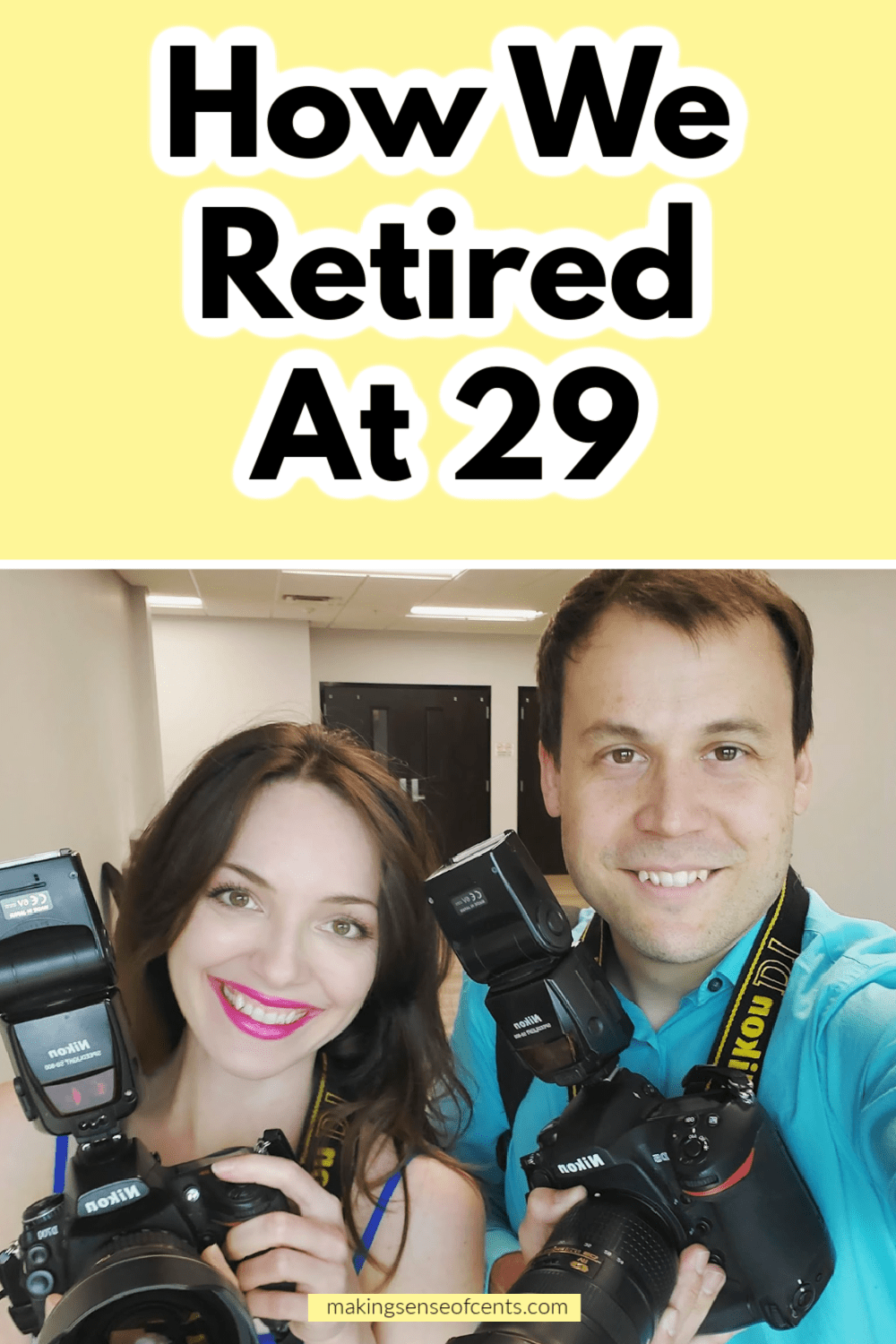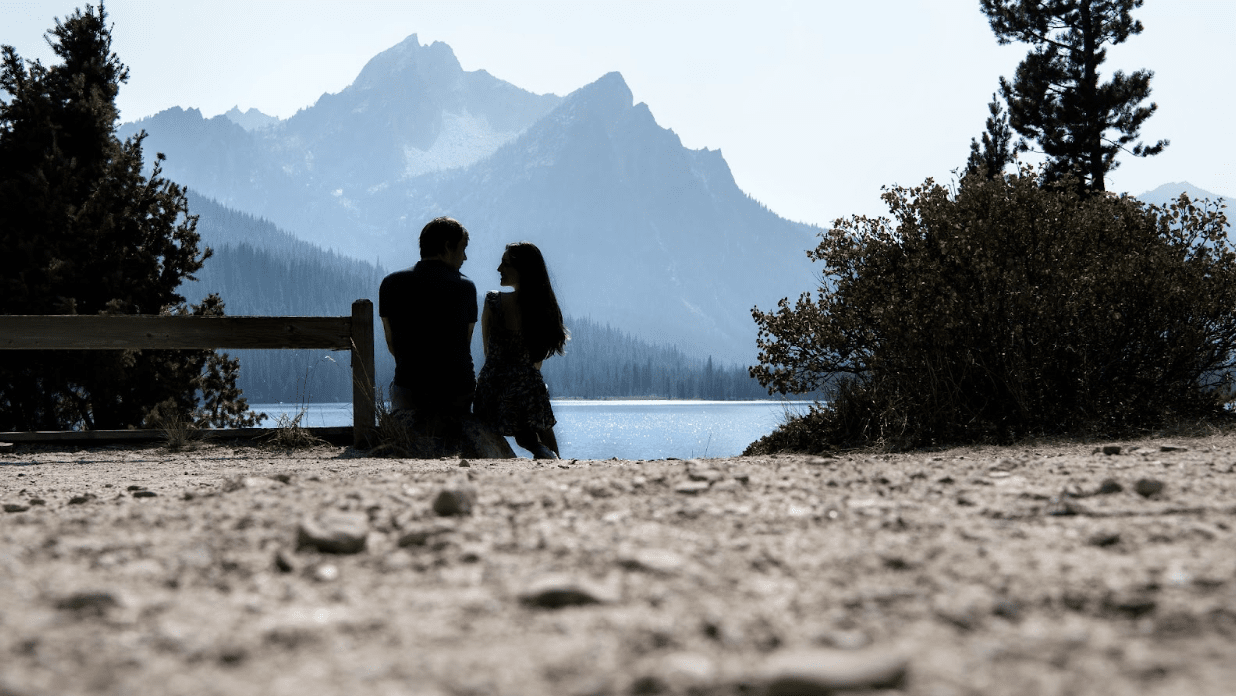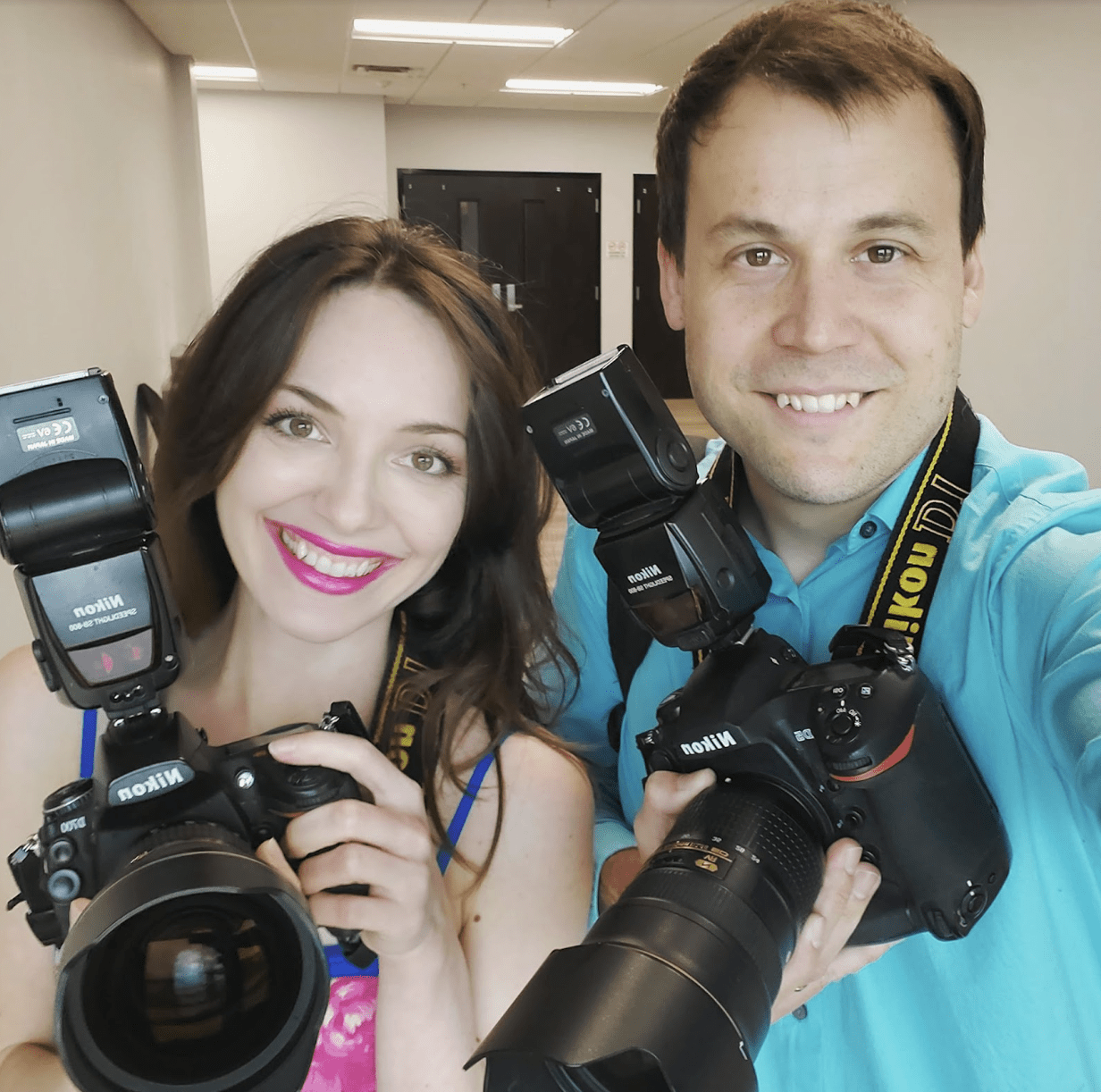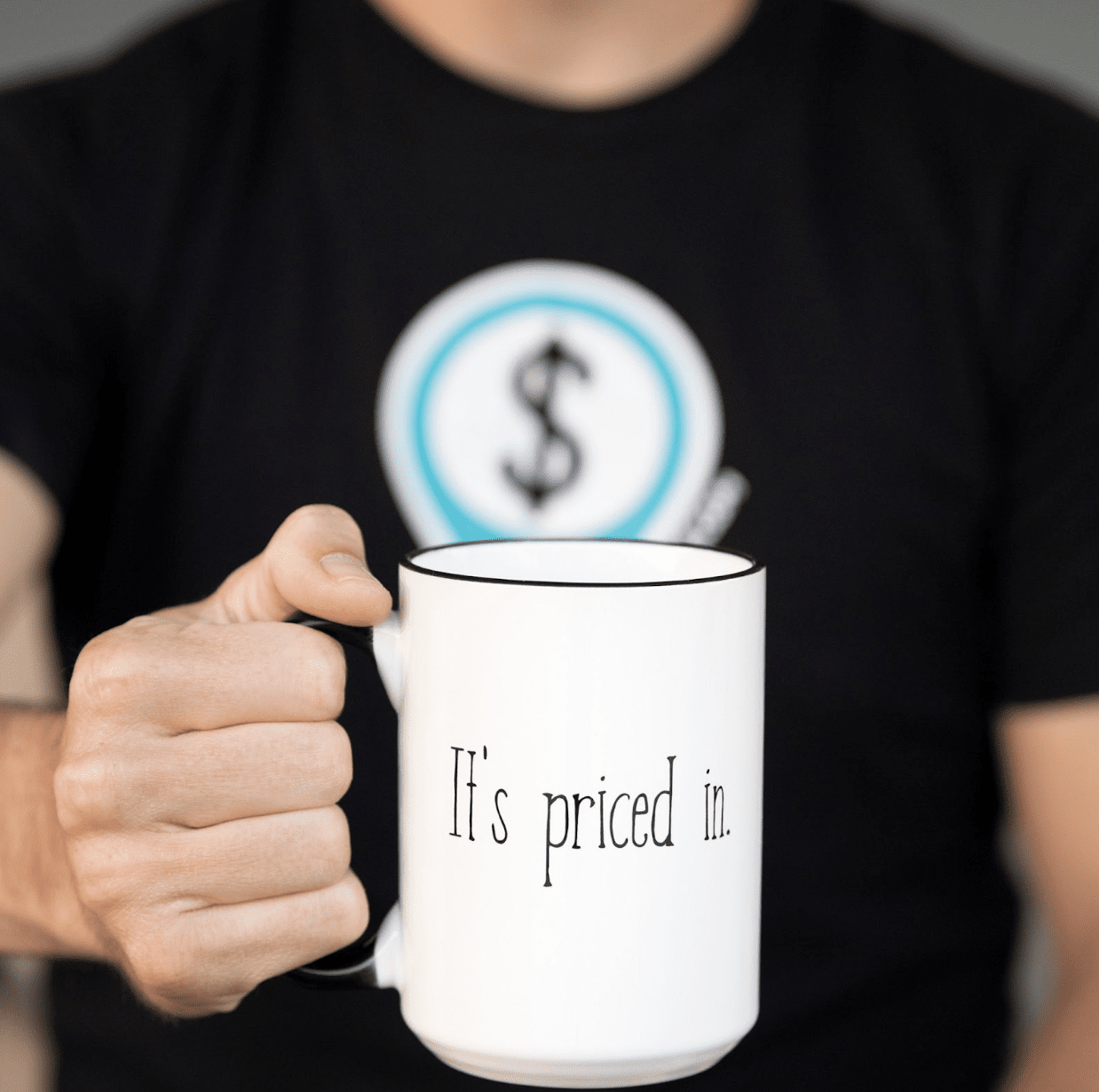Are you interested in early retirement and financial independence? Today, I have a great interview with Lauren and Steven, a couple who managed to save enough money to retire from their full-time jobs at the age of 29.
They have done some really fun things since freeing themselves from full-time work, such as spending six months in Hawaii, visiting every U. S. National Park, and more.
In this interview, you’ll learn:
- What they do for health insurance now that they don’t have full-time jobs
- What Lean FIRE is
- When they began saving for early retirement
- How they’re able to keep their expenses low
- How much they spend traveling in early retirement
- The jobs they had before they quit
- Whether or not they still work
And more!
This interview is packed full of valuable information on reaching early retirement.
Enjoy!
Related content:
1. Tell me your story. Who are you and what do you do?
I’m Steven Keys, co-founder of the blog Trip Of A Lifestyle, which I write with my wife, Lauren.
We retired from full-time work at age 29 by working middle-class jobs, living frugally, and investing 60-80% of our five-figure incomes into broad stock and bond market index funds.
Most people assume we lived some sort of deprived existence throughout our twenties to get to that point, but in reality, we had a lot of fun and cool experiences (like our six-month honeymoon in Hawaii), while our expenses remained quite low (around $18,000 – $22,000 per year, combined).
Traveling and enjoying life are surprisingly compatible with frugality and financial responsibility!
2. Can you explain how early retirement works? What is Lean FIRE?
“FIRE” stands for “Financial Independence / Retire Early.” The basic concept is based on something called the 4% Rule, which says that if you have at least 25× your annual expenses invested in a healthy mixture of stock and bond market index funds, you can very likely live on withdrawals from that portfolio for the rest of your life (even after accounting for inflation) — without a need to work for money.
“Lean FIRE” involves achieving this goal through the magic of low living expenses.
For example, if you only need $20,000 per year to fund your lifestyle, then you can retire on a portfolio of just 25 × $20,000, which is half a million bucks. Not only is that target pretty low in the first place, but it can be reached even faster because of the low rate of spending along the way.
Regardless of the specific dollar amount of your spending, if you save 50% of your income, you can reach FIRE in about 16 years, starting from zero.
If you save 80% of your income, you can retire after just a 6-year career.
3. When did you begin saving for early retirement?
When most people discover financial independence, they have to go through a (sometimes painful) process of reducing their expenses to get on track.
We were really fortunate that this never happened to us, because we were exposed to these ideas immediately after graduating from college (which is the main reason we target a younger audience with our blog).
Since we were already having a lot of fun living the “broke college kid” lifestyle, we just kept doing exactly what we were already doing, while earning shiny new full-time incomes. As a result, we were able to bank over $100,000 in just two years on public schoolteacher-level salaries.
From there, our incomes continued to increase while our spending remained the same. We had a mortgage-free home by age 25 and over a quarter-million dollar net worth by 26 — all while earning under $50,000 a year salaries per person.
4. What made you want to retire early?
To us, early retirement isn’t just about “not working.” We never actually hated our jobs. But we did value freedom.
Our first taste of absolute freedom came the summer after college graduation in 2012, when we took a 45-day, 17,000-mile road trip from Florida to Alaska and back. Once we came back from that, we were never the same again.
We really encourage people to take a “mini retirement” at some point during their accumulation phase of FIRE. In fact, it’s Step 4 of our Financial Roadmap.
Taking a break and experiencing some completely self-directed time in your life can give you a lot of perspective on why you’re saving so much money in the first place.
5. Would you say that you live comfortably?
Today, we wake up without alarm clocks in a mortgage-free condo directly across the street from the Atlantic Ocean every day. I wouldn’t say we live comfortably; I’d say we live lavishly.
And yet, our household expenses are still somewhere in the $25,000 to $30,000 per year range, combined, which I’m told is “ridiculously low.” The key to our “low” spending isn’t to deprive ourselves of valuable experiences — it’s just reducing waste.
Rather than owning two cars worth $40,000 each, we share just one vehicle with over 180,000 miles on its odometer (plus a couple of used bikes and kayaks). Instead of shopping at white-glove grocery stores like Publix, we buy the exact same brands at our local Walmart for 20% less.
Stuff like that.
Life is good, and we don’t feel like we’re missing out by neglecting to go into an office every day in order to buy more.
6. How much do you spend traveling each year? What do you spend your money on these days?
We love to travel! Our biggest travel accomplishment so far was to visit all 63 US National Parks.
Travel is a wildly fluctuating spending category for us, but we’ve found some big hacks to travel cheaply.
For example, we can take a 2-month road trip for around $4,000 total by making use of our Nissan NV200 camper van.
With that said, we’re considering increasing our spending slightly in the near future by traveling more internationally. We’re hoping to offset that cost by renting out our home while we’re gone — something we’ve done with great success in the past.
7. What career did you have before you retired? Do you think you have to have a high income in order to retire early?
My career was in education. I taught physics — first in public school, then later via private tutoring to college students. Lauren made her living doing marketing work for small businesses.
Our full-time salaries were in the high $30,000s per year toward the beginning of our journey. Even at that time, we were still able to save more than 50% of our incomes consistently, so no, I don’t think you need to have a “high income” (in American terms) to retire early.
However, earning more absolutely makes the task quicker and easier. Our incomes scaled up over time and briefly touched nearly $90,000 per person before we finally said “I quit” — while our expenses remained mostly flat. This sped up our accumulation process massively.
8. Do you still earn an income in early retirement?
Yes we do!
I still do freelance work for my last employer (somewhere around 10 hours per week, in a flexible format that allows me to travel whenever I want).
Lauren also has a freelance project, but realistically only works about one hour a week these days. And we occasionally still do photography gigs together — a fun side hustle we’ve had since high school.
When most people think of early retirement, they imagine this very hard cutoff, where you save exactly 25× your annual expenses and live off of carefully budgeted withdrawals according to the 4% Rule, while you restrict yourself to only “leisure” activities like golf and travel.
There is absolutely no reason it needs to be that way.
To tell you the truth, we “retired” from our full-time jobs with a little less than the prescribed 25× our annual expenses saved, because we knew we weren’t going to earn zero dollars from work for the rest of our lives.
We coasted our way to full financial independence in the next couple of years after retirement, with easy money from part-time work, which pays a much higher rate than a full-time job.
In addition to that, our blog makes a very small amount of money, although we’ve donated the majority of that to charity. It’s never really been much of a “business” to us.
Anyway, if you’re considering retiring early from your job in your 20s, 30s, or 40s, consider that you will almost certainly find yourself making extra money (just for the fun of it) at some point in your life.
You’re young and energetic, and you’ll probably wind up way richer than you need to be.
So, don’t be afraid to scale back your hours sooner rather than later.
You’ll be fine!
9. What sacrifices or hard decisions did you have to make to reach early retirement?
Money-wise, we never felt constrained in the slightest.
The hardest part about choosing a path of financial independence is that your friends and family probably won’t be along for the ride, and most of them probably won’t understand your choices.
As long as you don’t let other people’s opinions guide your actions, you’re golden.
10. What do you do for health insurance in early retirement?
It’s pretty simple, actually: We just buy it!
Depending on the amount of our Premium Tax Credits each year, our health insurance premium has fluctuated between $250 – $550 per month, combined (currently around $250, in 2022).
We pair this high-deductible healthcare plan with an HSA (health savings account) for additional tax benefits.
11. What are your long-term plans now that you are retired?
Our biggest “passion project” at the moment is our blog.
Having access to information about financial independence and early retirement right out of college changed the entire course of our lives, and we want to help as many young people with that same information as we can, for free.
In the future, who knows?
More travel, charity work, starting a business, raising a kid, creating artwork, going back to school — anything could happen. That’s the beauty of financial independence.
12. If you were starting back at the beginning, what would you do differently?
We would have skipped past our short phase of trying to actively pick stocks and high-fee mutual funds and gone straight to low-cost, passive index funds.
13. Lastly, what is your very best tip (or two) that you have for someone who wants to reach the same success as you?
Practice gratitude; be thankful for what you have — especially friends, family, health, and nature.
Beyond these, there is very little else you truly need to live a happy life. When your spending reflects this viewpoint, you’ll find yourself getting much richer, much faster.
Are you interested in reaching early retirement or financial independence? Why or why not?










